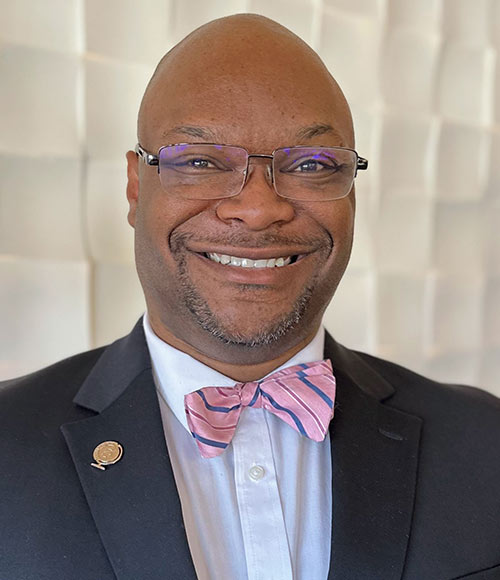Environmental Pollution, Social Injustices, and Cognitive Health: A New Study in Southeast Louisiana
March 15, 2024 - Shelly DeJong
A rural stretch of Southeast Louisiana has long been known as Cancer Alley. Dr. Kas Anderson Jr. of the Michigan State Department of Psychology knows this area by another name: home. Having grown up in Norco, Louisiana, Anderson Jr. has seen firsthand the toll this community faces by living with chemical plants and oil refineries in their backyards. Many residents in this area have been diagnosed with cancer at a significantly higher rate compared to other geographic areas. Black American residents also deal with the additional toll of historical segregation and other social inequities.
 Thanks to recent funding by a Tetrad Grant, Anderson Jr. and a team of MSU professors, including Dr. Norman Scheel (Radiology/Human Medicine) and Dr. Masako Morishita (Family Medicine), will be scientifically studying the impact of air pollution and social detriments of health on cognitive health and quality of life for older Black Americans in rural Louisiana.
Thanks to recent funding by a Tetrad Grant, Anderson Jr. and a team of MSU professors, including Dr. Norman Scheel (Radiology/Human Medicine) and Dr. Masako Morishita (Family Medicine), will be scientifically studying the impact of air pollution and social detriments of health on cognitive health and quality of life for older Black Americans in rural Louisiana.
Despite numerous studies on the long-term health effects of environmental pollution, the compounded impact of environmental pollution and social determinants of health remains largely unstudied.
“This project is important because it will be the first time that residents in these areas will have a space to share their lived experiences with the scientific community regarding living in these conditions with the juxtaposition of racism and classism, and how those factors have impacted their health and well-being,” said Anderson Jr.
The researchers will be conducting research in rural Black American communities in Southeast Louisiana including St. Charles, St. John, and Jefferson Parishes, and will work to quantify the association between environmental pollutants, social determinants of health, and the quality of life for older Black American adults.
They will use cognitive, behavioral, and environmental assessments to measure cognitive decline, behavioral risk and protective factors, toxic metal data, water toxicity levels, and indoor air quality. Physiological measures of blood oxygen saturation will be used as well.
Qualitative interviews will be conducted with 60 participants to examine the lived experiences of older adults living in air-polluted environments.
“The cognitive health of this community has long been ignored in research studies. Studies too often ignore or discount the intersectional impacts of syndemic conditions in Black communities, said Anderson Jr. “Through our research, we will highlight the voices of community elders and their experiences with health inequities and syndemic injustices. Ultimately, we aim to curate comprehensive understanding of how environmental and social injustices affect cognitive well-being for Black Americans living in similar conditions.”

